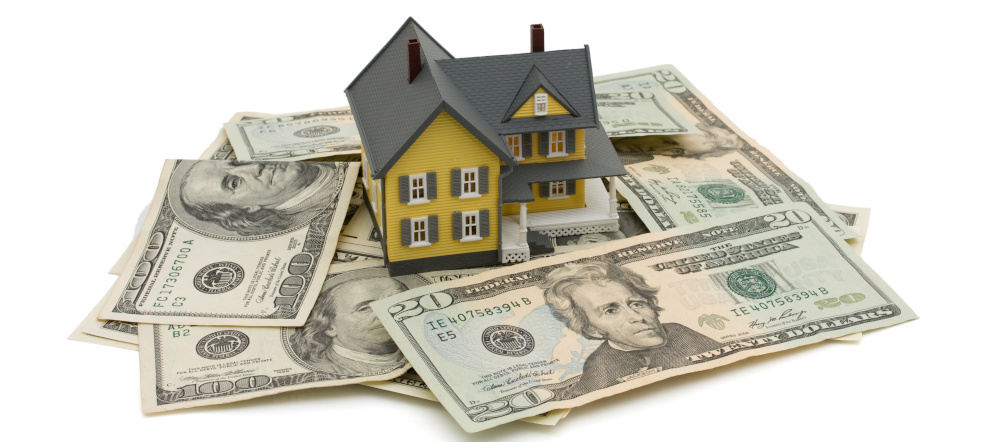5 Things To Consider Before Selling A House
Whether you're moving soon, inherited a property, or want to sell a vacation house, selling a house shouldn't be done haphazardly. One mistake could lead to delays and a relatively unsatisfactory closing price. It's crucial to know what to prepare and expect in terms of the length of time you'll be able to sell your house, the pricing, requirements, and other relevant factors.
Here are the important considerations to keep in mind before selling a house:

1. Selling Your House As Is
Selling your house in an "as is" condition means that your property is a fixer-upper, and it won't be improved or repaired before it's sold. Also, it means that your house is priced for sellers to sell it fast without spending extra money and for property buyers to get it at a low price, which is reasonable given its current condition.
You can sell your house without making any improvements at wearehomebuyers.com or similar platforms. It's a smart move to sell your house as-is, especially when:
-
You Inherited A House: It makes sense to sell inherited property to a cash buyer without making repairs if you don't have the money, time, and energy to deal with it. While you might not get the best price for your inherited house, it's worth the trade-off because of how much time and money you'll save.
-
Prefer To Spend Your Time More Productively: If you own a business or earning US$100 an hour on your day time job, you might want to spend it working than wasting your time worrying about a house to paint, refinish, or fix.
-
Minor Changes Won't Revamp The Price: If you think making minor repairs or improvements won't significantly increase your home's value, then selling it "as is' is the better option.
-
The House Is About To Knock Down: If your property is rundown and beyond repair, selling it to a real estate investor who pays quick cash is a smart choice.
-
Home Inspection Stresses You: A home inspection can be your biggest nightmare when selling a house. And buyers can be demanding and renegotiate due to unwanted results. In this case, it's more stress-free to sell your house "as is.'
2. Market Trends
Save or gain thousands of dollars by increasing your awareness of the housing market. What's the choice for sellers? Housing market trends point to selling before prices go down and inventory increases.
3. Requirements When Selling A House
What are the documents to prepare and gather before listing and selling your home? First, you should prepare the original sales contract, the agreement made with the previous property owner when you bought the house. It outlines the terms of the purchase transaction. The sales contract shows the selling price of the house and any disclosures made before the sale.
The other requirements you need to gather when selling a house should include the following:
-
Professional Appraisal: It's a professional assessment of your home's fair market value that determines the amount of money a mortgage lender is willing to lend to a buyer. You need a brand-new appraisal if you're selling your house with the help of a realtor, unless you're dealing with a cash buyer.
-
Mortgage Statement: This document pertains to the payoff amount of your current mortgage. Contact your servicer or lender and request a mortgage statement that shows the payoff amount or the amount of money you need to pay to satisfy your mortgage loan terms.
-
Homeowners Insurance Records: Be transparent about repairs and damages to your home by providing the buyer with proof of homeowners insurance information.
-
Other Documents: Homeowners Association (HOA) documents, repair and maintenance records, receipts for capital improvements, manuals and warranties (of appliances), and past utility bills.
4. Best Time To Sell A House
So, when is the perfect time to sell your house? The busiest season when sellers and buyers meet is spring, especially the first two weeks of May. Spring attracts many buyers because of the lush landscaping opportunities, longer days, and warmer weather. On the other hand, fall or winter is the worst time of the year, particularly October and December, to sell a house at a 3.3% seller premium.
5. Renovations To Pass Inspection
Before selling your house on your own or hiring a real estate professional, it's essential to make sure that major problems are addressed to avoid significant financial setbacks. Check the following things that usually fail on a home inspection:

-
Water Damage: It causes dangerous mold and mildew, wearing away at the home's structure. Repairing this damage isn't cheap.
-
Inefficient HVAC Systems: Homebuyers always prefer cost-effective heating and cooling systems. Broken and inefficient heating and cooling elements pose safety risks for homebuyers.
-
Electrical Issues: Many older houses have electrical wiring problems that aren't up to code due to installation before the fire code regulations or a result of DIY efforts. Old and incorrectly installed wiring is a fire hazard that needs prompt resolution.
-
Plumbing Problems: Clogged or leaky pipes are bad news because the repairs cost thousands of dollars. Potential buyers will be frustrated knowing there's potential water damage.
-
Roof and Siding Problems: Damaged or old siding and rooftops and sidings cause water damage problems and pest infestation.
-
Damp Attic Spaces: Improper ventilation or leaks in the attic could result in mold and mildew growth and rotting insulation.
Conclusion
Before selling your home, you need to consider some essential things, including knowing the best time to sell, market trends, and requirements. You need to know the renovations you have to make to pass inspection should you list your house or hire a real estate professional to sell your property. Also, you might want to consider selling your home "as is' to close the sale and get cash quickly.